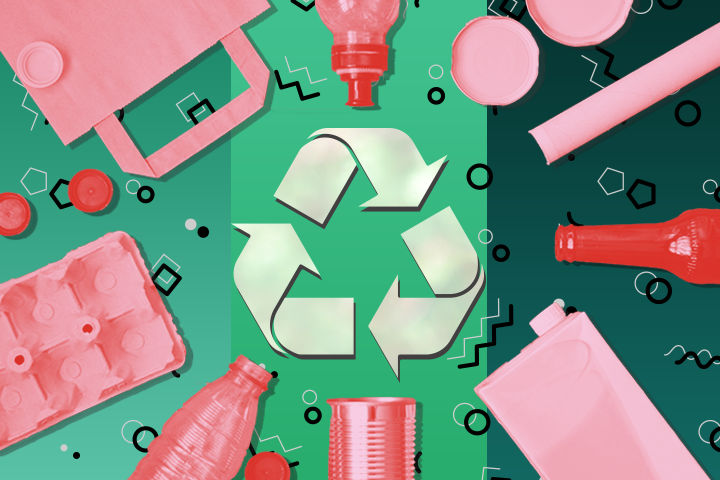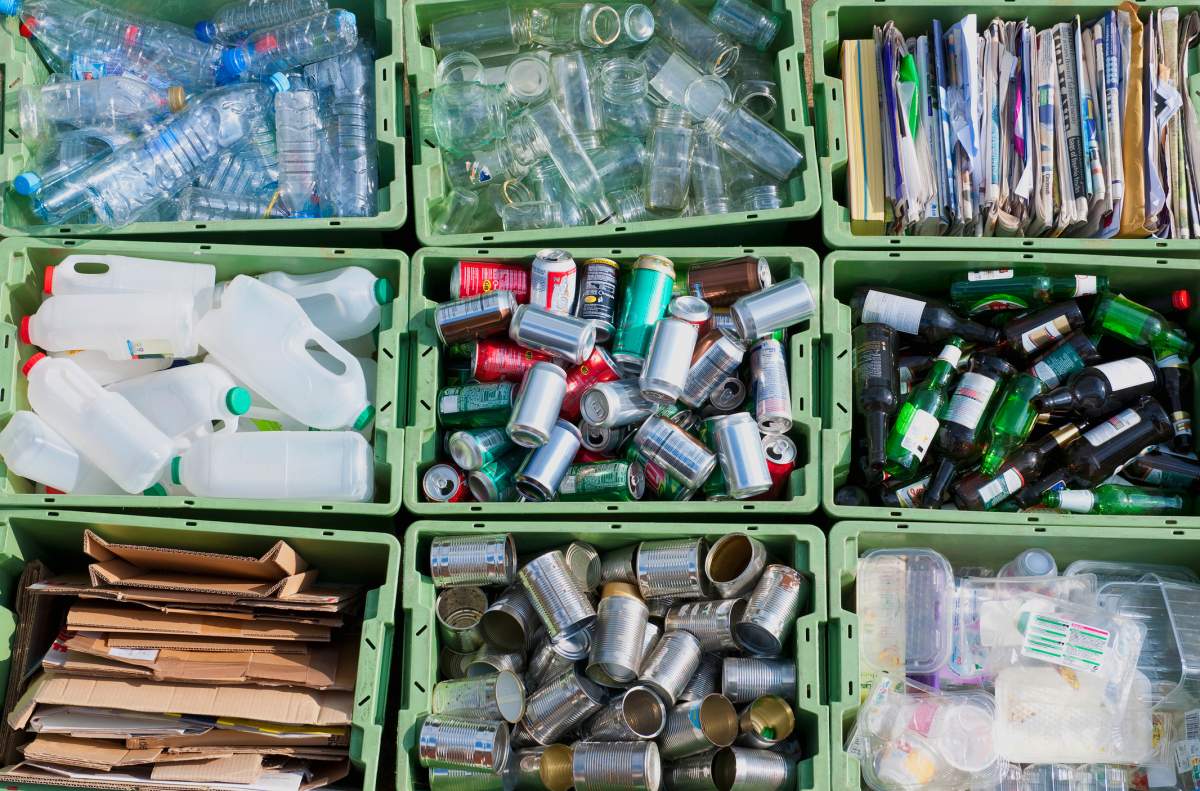It’s no secret that climate change is a huge threat to the future of our planet, but the thought of making meaningful change can feel, well, overwhelming.

But according to Michelle Genttner, the founder of Toronto’s new zero-waste grocery store Unboxed Market, even the smallest changes are positive steps in reducing our carbon footprint.
“Simply being aware of what one is bringing into their day-to-day lives is helpful,” she told Global News.
So how can you start making those tiny changes that can have a big impact? Here are three areas of your life where you can start being more green.
In your household…
Genttner says if you’re looking to reduce waste, a more sustainable life starts in the home.
“It can be very difficult to eliminate all waste from one’s home at once,” Genttner explained. “It is easier to focus on one area and move to another once that has been accomplished.”
WATCH: The push for sustainable products

Genttner suggests looking around your home and seeing where you can make some changes. If you are finding yourself recycling or shredding a lot of mail, for example, consider switching to online billing and requesting that companies stop mailing you advertisements, she says.
Another easy green hack? Utilize your technology.
“Write your shopping list on your phone or on a whiteboard on your fridge that you can take a picture of,” Genttner advised.
When it comes to disposing of products, Genttner says one of the biggest problems in households is not sorting waste properly.
READ MORE: Here’s a $65 grocery list for a week of healthy eating for one
“If you put dirty objects in the recycling bin, for example, you can contaminate the entire pickup, which can cause a full truckload to be sent to the landfill instead of the recycling plant,” Genttner explained.
Containers are another area where many people can significantly reduce their waste. Genttner says people should bring travelling coffee mugs when they stop at their local cafe in the morning, as “consumers waste millions of dollars in takeout coffee cups alone every year.”
And, whenever possible, stop buying plastic water bottles. Reusing a mason jar or investing in a BPA-free reusable bottle like Nalgene helps eliminate lots of plastic — a material that often ends up in the ocean.

Get daily National news
WATCH: How you can live a greener and more sustainable life

In the grocery store…
While most grocery stores now encourage customers to bring their own reusable shopping bags or purchase ones in-store, there’s still lots of waste that occurs while grocery shopping.
Take, for instance, those small plastic bags you use for fruit and vegetables. Or the containers that things like boxed lettuce and vine tomatoes come in. Start asking yourself where you can use reusable containers, Genttner says.
“Do you need a bag for every object? Does it need to be plastic? Can you carry things in containers that you have?” she said. “Bring your containers to the store with you. You don’t necessarily need to purchase items in order to lower your waste output.”
READ MORE: 11 surprising foods you can freeze
While the principals behind a no-waste grocery store like Genttner’s are great, not everyone has access to such resources. That’s where taking advantage of what you do have access to counts.
If you live near a farmer’s market, for example, bring your own containers there to shop for locally sourced food. This can also help with reducing food waste, as you should try to only buy based on what you actually need, not based on the largest portion available.
When it comes to buying at big box grocery stores, don’t contribute to food waste; instead, buy misshapen or wonky-looking produce. Lots of food gets thrown out because of its odd size or colour, despite the fact that it’s perfectly fine to eat.
WATCH: Plastic pollution crisis — How waste ends up in our oceans

“We are a society that over-consumes,” Genttner said. “Many of our purchases end up in the disposal stream — be it waste or recycling — before they have been completely used up and often before they have been touched at all.”
Another way to shop smarter? Think about the size of what you’re buying and avoid individually packaged products whenever possible. While pre-packaged yogurt and oatmeal is convenient, you can often buy larger quantities of such items and then portion them out in reusable containers or mason jars at home.
In your wardrobe…
Researching a brand or company and knowing about their manufacturing practices is important. The fashion industry is notorious for its environmentally harmful practices, including the use of toxic chemicals and textile waste.
READ MORE: The best and worst places to be a woman in 2019
This means it’s crucial to know what you are buying and support locally made or ethically sourced products whenever possible. Shopping second-hand and participating in clothing swaps are also good — and more affordable — ways to lessen your carbon footprint.
For Tim Brown and Joey Zwillinger, founders of footwear brand Allbirds, sustainability is a “non-negotiable” part of their company, the pair told Global News. Allbirds shoes are crafted out of merino wool — a textile with a lighter carbon footprint than chemically treated synthetics — and their laces are made from recycled plastic bottles.
These features not only benefit the environment but also the company. “We centred our entire business on making better products that are just better on their own,” Zwillinger said.
WATCH: Halifax-based company’s technology reduces food waste

“And in doing that through the use of sustainable materials, we also thought that it would resonate with a lot of consumers — particularly younger consumers — who are really caring a lot more about what they’re purchasing and caring about the practices of the businesses that they’re buying products from.”
While more consumers may be interested in sustainability, Zwillinger said many fashion companies aren’t moving towards green practices fast enough.
“I think there’s some real bright spots out there, particularly in more modern, younger companies, but within the legacy brands, there’s a lot of talk and too little action, in my perspective,” he explained.
READ MORE: What blood tests can — and can’t — reveal about your health
Brown says that creating a greener planet is an undertaking in which everyone needs to be involved.
Laura.Hensley@globalnews.ca









Comments
Want to discuss? Please read our Commenting Policy first.